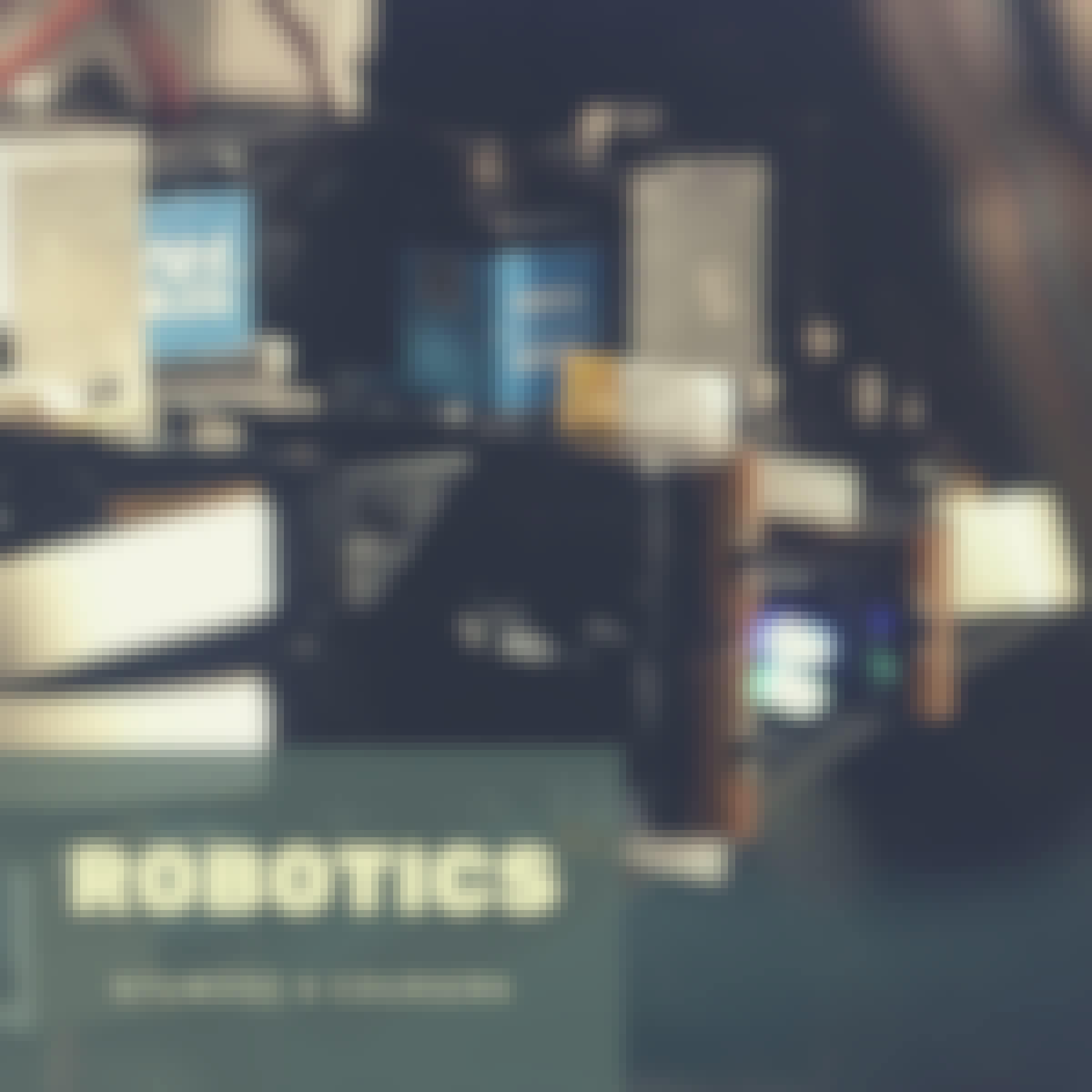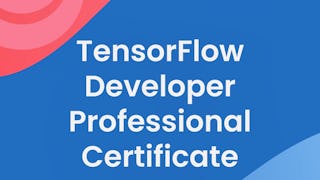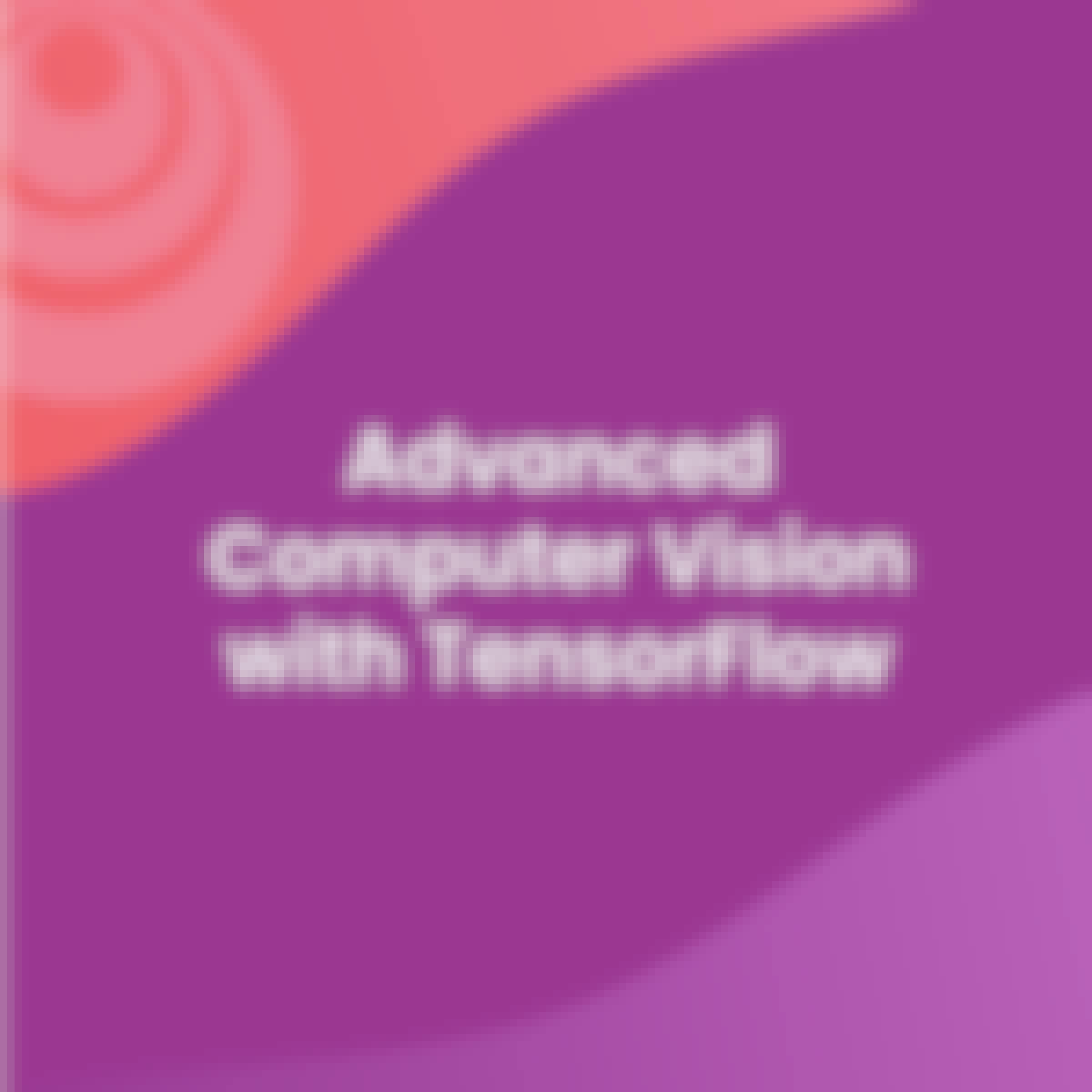Filter by
SubjectRequired
LanguageRequired
The language used throughout the course, in both instruction and assessments.
Learning ProductRequired
LevelRequired
DurationRequired
SkillsRequired
SubtitlesRequired
EducatorRequired
Explore the Autonomous Robotics Course Catalog

National Taiwan University
Skills you'll gain: Automation Engineering, Mechanical Engineering, Linear Algebra, Engineering Calculations, Trigonometry, Applied Mathematics, Control Systems, Mathematical Modeling, Spatial Analysis
 Status: Free Trial
Status: Free TrialDeepLearning.AI
Skills you'll gain: Tensorflow, Computer Vision, Image Analysis, Keras (Neural Network Library), Natural Language Processing, Time Series Analysis and Forecasting, Deep Learning, Artificial Neural Networks, Generative AI, Artificial Intelligence and Machine Learning (AI/ML), Applied Machine Learning, Predictive Modeling, Text Mining, Forecasting, Data Processing, Machine Learning, Supervised Learning
 Status: Free Trial
Status: Free TrialSkills you'll gain: Keras (Neural Network Library), Deep Learning, PyTorch (Machine Learning Library), Artificial Neural Networks, Tensorflow, Image Analysis, Computer Vision, Natural Language Processing, Machine Learning, Network Architecture, Regression Analysis

DeepLearning.AI
Skills you'll gain: Market Opportunities, Artificial Intelligence, Data Ethics, Artificial Intelligence and Machine Learning (AI/ML), Strategic Thinking, Artificial Neural Networks, Data Science, Business Intelligence, Deep Learning, Machine Learning, Business Transformation, Computer Vision
 Status: Free Trial
Status: Free TrialUniversità di Napoli Federico II
Skills you'll gain: Control Systems, Systems Architecture, Simulation and Simulation Software, Global Positioning Systems, Automation, Mechanical Engineering, Computer Vision, Mathematical Modeling, Estimation, Real Time Data, Business Intelligence
 Status: Free Trial
Status: Free TrialUniversity of Toronto
Skills you'll gain: Control Systems, Embedded Software, Automation, Software Architecture, Simulations, Safety Assurance, Hardware Architecture, Systems Architecture, Verification And Validation, Mathematical Modeling, Engineering Analysis, Computer Hardware, Risk Management Framework, Mechanics
 Status: Free Trial
Status: Free TrialMultiple educators
Skills you'll gain: Tensorflow, Keras (Neural Network Library), Machine Learning, Google Cloud Platform, Applied Machine Learning, Financial Trading, Reinforcement Learning, Supervised Learning, Data Pipelines, Time Series Analysis and Forecasting, Statistical Machine Learning, Technical Analysis, Deep Learning, Portfolio Management, Machine Learning Methods, Artificial Neural Networks, Securities Trading, Artificial Intelligence and Machine Learning (AI/ML), Market Data, Financial Market
 Status: Free Trial
Status: Free TrialDeepLearning.AI
Skills you'll gain: Computer Vision, Tensorflow, Image Analysis, Applied Machine Learning, Deep Learning, Feature Engineering, Artificial Neural Networks, Visualization (Computer Graphics), Data Processing, Network Architecture
 Status: Free Trial
Status: Free TrialSkills you'll gain: MITRE ATT&CK Framework, Penetration Testing, Cyber Operations, Scripting, Cybersecurity, Python Programming, Network Analysis, Authentications, Automation

Skills you'll gain: Oracle Databases, Data Migration, Oracle Cloud, Database Administration, Database Architecture and Administration, Application Development, Database Management, Performance Tuning, Disaster Recovery, SQL, Cloud Infrastructure, Cloud Services, Identity and Access Management, Scalability
 Status: Free Trial
Status: Free TrialNorthwestern University
Skills you'll gain: Mathematical Software, Simulation and Simulation Software, Mathematical Modeling, Automation Engineering, Mechanical Engineering, Vibrations, Numerical Analysis, Engineering Calculations, Engineering, Mechanics, Algorithms, Torque (Physics), Differential Equations, Control Systems, Applied Mathematics, Calculus
 Status: Free Trial
Status: Free TrialNew York University
Skills you'll gain: Supervised Learning, Reinforcement Learning, Applied Machine Learning, Machine Learning, Statistical Methods, Dimensionality Reduction, Unsupervised Learning, Machine Learning Algorithms, Artificial Neural Networks, Decision Tree Learning, Predictive Modeling, Financial Trading, Financial Market, Derivatives, Scikit Learn (Machine Learning Library), Markov Model, Regression Analysis, Deep Learning, Market Liquidity, Tensorflow
Autonomous Robotics learners also search
In summary, here are 10 of our most popular autonomous robotics courses
- 機器人學一 (Robotics (1)): National Taiwan University
- DeepLearning.AI TensorFlow Developer: DeepLearning.AI
- Introduction to Deep Learning & Neural Networks with Keras: IBM
- IA Para Todos (Español): DeepLearning.AI
- Autonomous Aerospace Systems: Università di Napoli Federico II
- Introduction to Self-Driving Cars: University of Toronto
- Machine Learning for Trading: Google Cloud
- Advanced Computer Vision with TensorFlow: DeepLearning.AI
- Advanced Python - Reconnaissance: Infosec
- Oracle Autonomous Database Professional: Oracle










